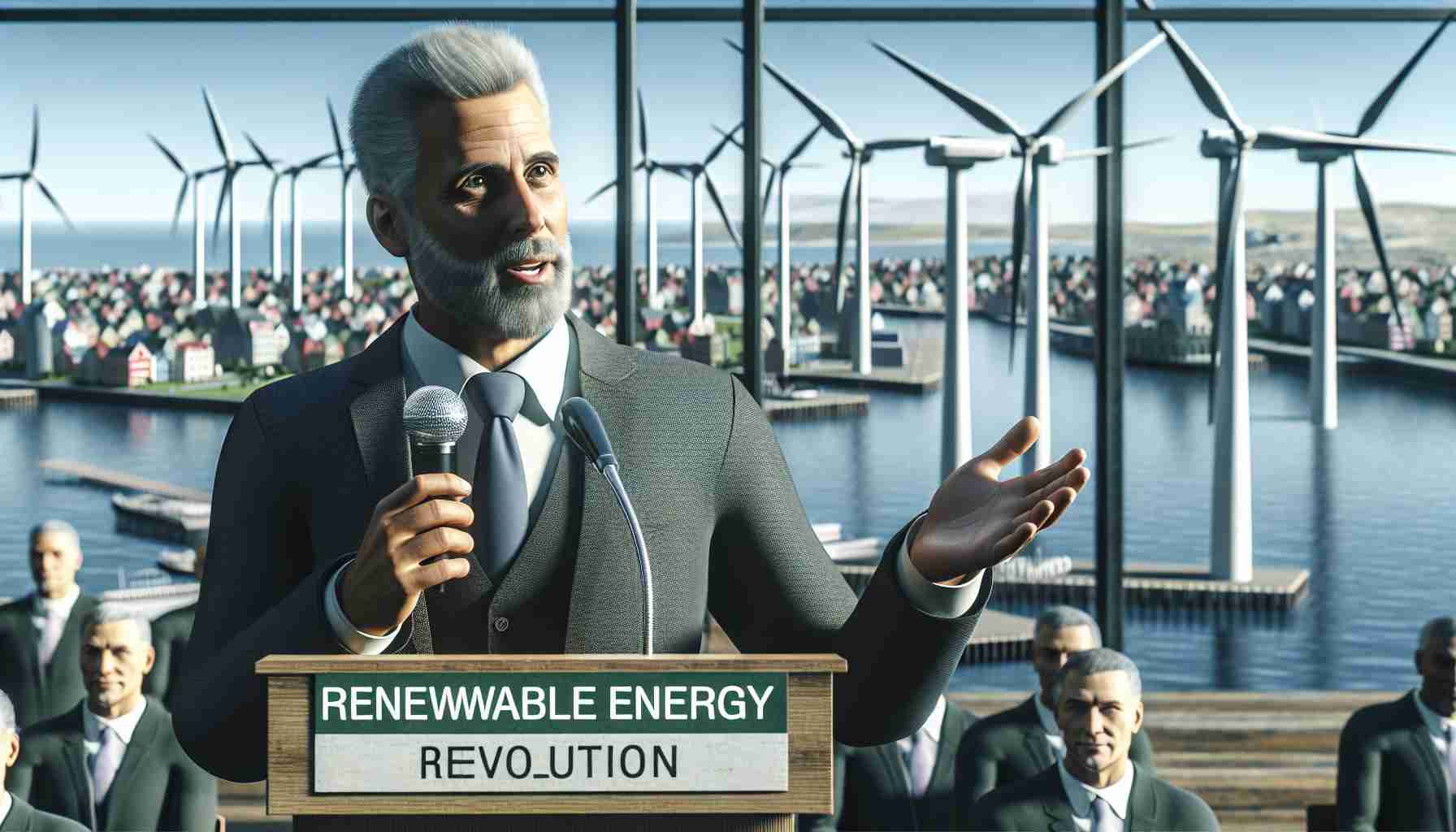
Renewable Energy Under Fire
Recently, Donald Trump shared his critical views on the UK’s renewable energy efforts, particularly targeting the nation’s reduction of oil and gas production. This came after the UK government announced a raise in the tax on North Sea drilling, which has caused considerable debate among politicians and industry leaders.
Dave Laister, associated with Humber Marine and Renewables, is extending an invitation to Trump to visit Hull and witness firsthand the positive effects of the region’s offshore wind industry, which has revitalized local economies and generated numerous jobs. Trump’s remarks echoed concerns that shifting towards renewable energy could compromise economic stability, with some politicians supporting his views.
While Lincolnshire MP Richard Tice voiced agreement with Trump, expressing skepticism about wind energy’s impact on electricity costs, others defend the growth of the renewable sector. Doug Parr, chief scientist at Greenpeace, highlighted that renewable energy tends to be more economical than fossil fuels.
Despite mixed opinions, industry stakeholders are keen for Trump to see the advancements in renewable technology. Laister emphasizes that the offshore wind sector has provided thousands of job opportunities, making it a critical component of the local economy.
As the UK aims for a future powered by clean energy, Trump’s visit could spark further discussions on the balance between fossil fuel use and renewable investments.
Renewable Energy: Opportunities and Challenges in a Changing Landscape
Understanding the Current State of Renewable Energy
Renewable energy has become a focal point in discussions surrounding energy production and environmental sustainability. As countries like the UK push for increased reliance on renewable resources, they face both support and criticism from various political figures, including former President Donald Trump. His recent comments regarding the UK’s energy policies have reignited debates on the viability and economic implications of renewable energy initiatives.
Key Features of the Renewable Energy Sector
1. Diverse Energy Sources: The renewable energy sector encompasses various forms of energy, including solar, wind, hydroelectric, and biomass. Each has unique benefits and challenges regarding implementation and efficiency.
2. Job Creation: Reports show that the renewable energy industry has the potential to create millions of jobs globally. In the UK alone, the offshore wind sector has generated thousands of jobs, contributing to local economies and workforce development.
3. Cost Competitiveness: Renewable energy technologies are increasingly seen as cost-competitive with traditional fossil fuels. According to studies, wind and solar energy prices have dropped significantly, making renewables an economically viable option for many regions.
FAQs about Renewable Energy in the UK
– What is the role of offshore wind in the UK’s energy strategy?
Offshore wind plays a pivotal role in the UK’s commitment to achieving net-zero emissions. The government has set ambitious targets to expand offshore wind capacity, aiming to generate 40GW by 2030.
– How do renewable energy sources impact electricity prices?
While some argue that the transition to renewable energy may initially raise costs, numerous analyses suggest that over time, renewable energy can lower electricity prices by reducing reliance on imported fuels and decreasing fossil fuel volatility.
– What are the economic arguments for renewable energy?
Proponents argue that investments in renewables not only spur job growth but also enhance energy security and stability through diversified energy sources.
The Pros and Cons of Renewable Energy Transition
Pros:
– Environmental Benefits: Reducing greenhouse gas emissions and reliance on fossil fuels contributes directly to combating climate change.
– Energy Independence: Developing domestic renewable resources decreases reliance on imported fuels, increasing national energy security.
– Technological Innovations: The renewable sector promotes technological advancements, leading to more efficient energy solutions over time.
Cons:
– Intermittency Issues: Renewables like wind and solar are weather-dependent, creating challenges for energy reliability and grid management.
– Infrastructure Costs: Transitioning to renewables often requires significant upfront investment in infrastructure, which can be a barrier in some regions.
– Economic Concerns: Critics cite potential job losses in fossil fuel industries and economic implications for regions reliant on traditional energy sources.
Market Analysis and Predictions
The renewable energy market is expected to grow substantially over the next decade, driven by technological advancements, supportive government policies, and increasing consumer demand for sustainable energy solutions. An annual growth rate of 8.4% has been forecasted for the global renewable energy sector through 2027.
Innovations and Future Trends
– Energy Storage Technologies: Advances in battery storage technology are critical to addressing the intermittency of renewable energy sources, allowing for more consistent power supply.
– Smart Grid Development: The integration of smart technology is revolutionizing how energy is consumed and distributed, enhancing efficiency and enabling better management of renewable resources.
– Sustainability Practices: The focus on sustainability is escalating, with more companies adopting practices to minimize their carbon footprints and invest in renewable energy projects.
Conclusion
The debate surrounding renewable energy is complex and multifaceted, incorporating concerns about economic viability alongside environmental imperatives. As leaders like Donald Trump scrutinize renewable initiatives, it remains essential for stakeholders to highlight the benefits of expanding renewable infrastructure and technology. The UK’s commitment to a cleaner energy future will likely continue evolving, reflecting both the challenges and opportunities presented by this dynamic industry. For further exploration of these topics, visit gov.uk.



